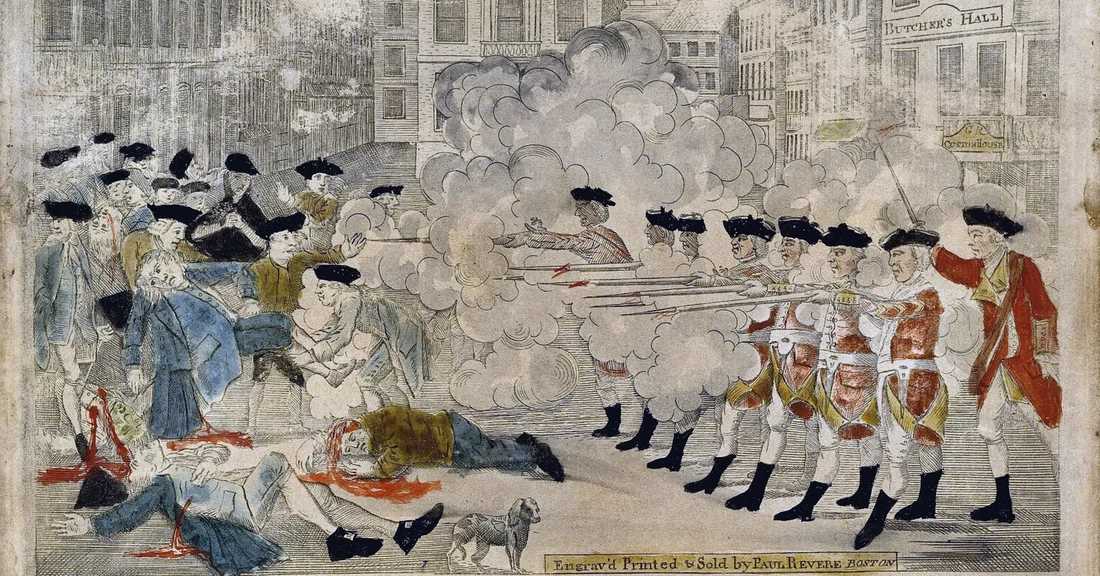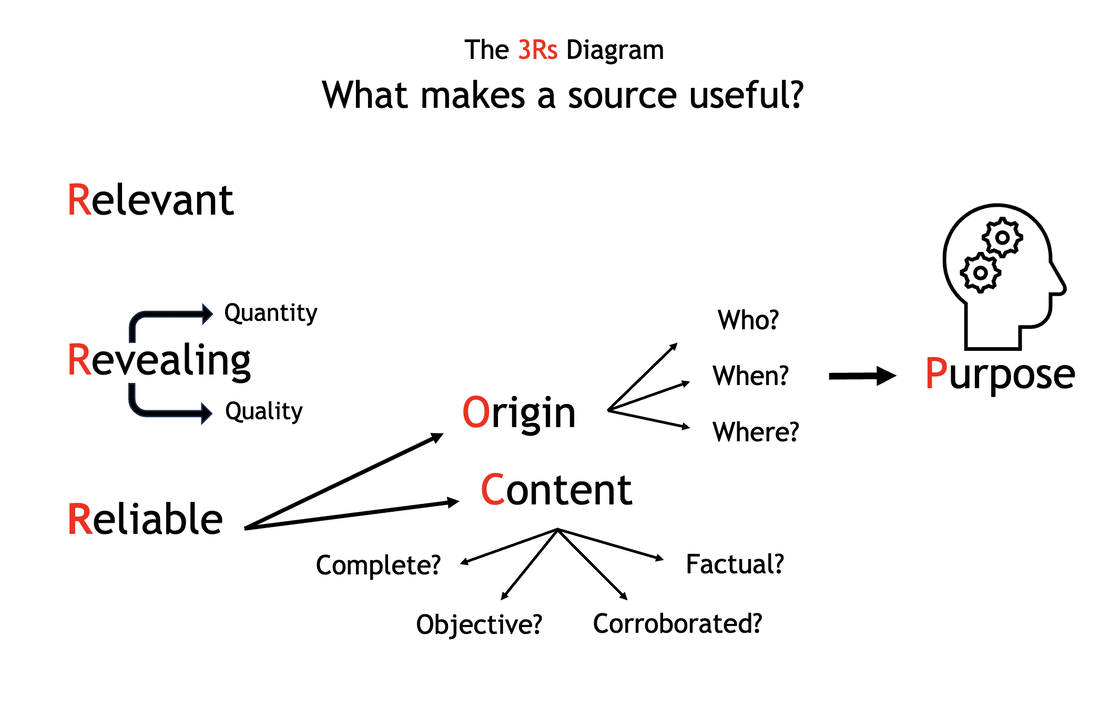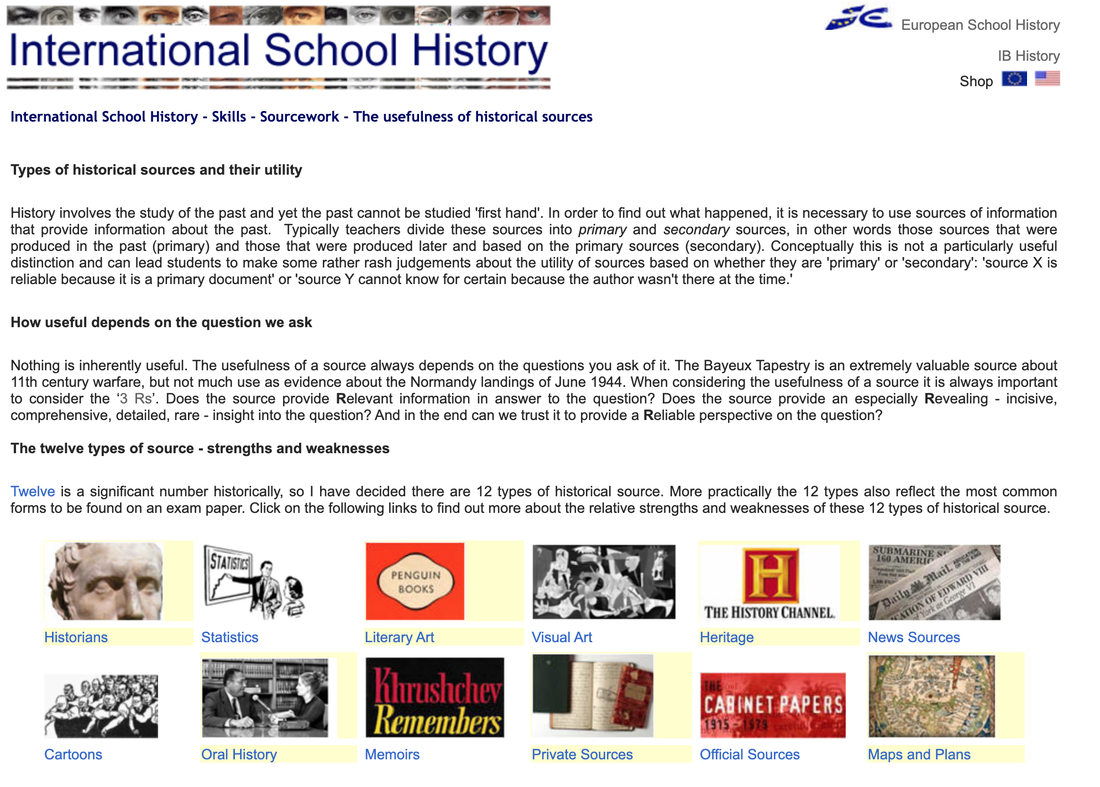Lesson 6 - The Boston Massacre or the Incident on King Street.
During the Stamp Act 1765 crisis, Archibald McCall, a landowner loyal to Britain, was attacked by a Patriot mob in Virginia. He insisted on collecting the British tax that was placed on stamps and other documents. In reaction, a mob formed and stormed his house in Tappahannock, Virginia. They threw rocks through the windows and McCall was captured, tarred and feathered. Tarring and feathering is a form of public torture and punishment used to enforce unofficial justice or revenge. This was the first recorded instance of tarring and feathering in the cause of American Independence.
More important than violent actions of the Patriot mob were the 'committees of correspondence' to coordinate their efforts and exchange information. These committees were made up of influential colonists and were responsible for communicating with other colonies and organizing protests and boycotts against British policies. The campaign against the Stamp Act was successful. People refused to pay the tax. King George's government decided to drop the Stamp Act but they replaced it with the Townshend Acts or duties which introduced taxes on imported goods such as tea, glass, paint and paper. The Townshend Duties were passed during 1767 and 1768 are named after the Chancellor of the Exchequer who proposed the program. The colonists felt this was almost as bad. In protest, they organised a boycott of British goods.
During the Stamp Act 1765 crisis, Archibald McCall, a landowner loyal to Britain, was attacked by a Patriot mob in Virginia. He insisted on collecting the British tax that was placed on stamps and other documents. In reaction, a mob formed and stormed his house in Tappahannock, Virginia. They threw rocks through the windows and McCall was captured, tarred and feathered. Tarring and feathering is a form of public torture and punishment used to enforce unofficial justice or revenge. This was the first recorded instance of tarring and feathering in the cause of American Independence.
More important than violent actions of the Patriot mob were the 'committees of correspondence' to coordinate their efforts and exchange information. These committees were made up of influential colonists and were responsible for communicating with other colonies and organizing protests and boycotts against British policies. The campaign against the Stamp Act was successful. People refused to pay the tax. King George's government decided to drop the Stamp Act but they replaced it with the Townshend Acts or duties which introduced taxes on imported goods such as tea, glass, paint and paper. The Townshend Duties were passed during 1767 and 1768 are named after the Chancellor of the Exchequer who proposed the program. The colonists felt this was almost as bad. In protest, they organised a boycott of British goods.
|
Boston in Massachusetts took a lead in these developments. It was a prosperous port with a population of over 16,000. Many British soldiers (who were known as 'Redcoats' because of the colour of their uniform) were stationed there. Relations were bad between the soldiers and the citizens of Boston. One reason for that was that the Redcoats, who were very badly paid, often took part-time jobs. They were willing to work for low wages and this cut the wages of the local people.
On 5 March 1770, a dispute broke out between a group of soldiers and some citizens. The soldiers opened fire. Five people were killed and seven were injured. This became known as the Boston massacre and passed into American folklore as an example of British cruelty. |
|
'Massacre' or 'incident ': what actually happened on the 5th of March 1770?
On the evening of March 5, Private Hugh White stood on guard duty outside the Boston Custom House on King Street.
A young wigmaker's apprentice named Edward Garrick called out to Captain-Lieutenant John Goldfinch, saying that Goldfinch had not paid a bill due to Garrick's master. Goldfinch had settled the account the previous day and ignored the insult. Private White called out to Garrick that he should be more respectful of the officer, and the two men exchanged insults. Garrick then started poking Goldfinch in the chest with his finger; the officer left his post, challenged the boy, and struck him on the side of the head with his musket. Garrick cried out in pain, and his companion Bartholomew Broaders began to argue with White which attracted a larger crowd.
As the evening progressed, the crowd around Private White grew larger and more boisterous. Church bells were rung, which usually signified a fire, bringing more people out. White had taken up a somewhat safer position on the steps of the Custom House, and he sought assistance. Runners alerted Captain Thomas Preston, the officer of the watch at the nearby barracks. According to his report, Preston dispatched a non-commissioned officer and six privates of the 29th Regiment of Foot to relieve White with fixed bayonets. When they reached Private White on the custom house stairs, the soldiers loaded their muskets and arrayed themselves in a semicircular formation. Preston shouted at the crowd to disperse, estimated between 300 and 400.
On the evening of March 5, Private Hugh White stood on guard duty outside the Boston Custom House on King Street.
A young wigmaker's apprentice named Edward Garrick called out to Captain-Lieutenant John Goldfinch, saying that Goldfinch had not paid a bill due to Garrick's master. Goldfinch had settled the account the previous day and ignored the insult. Private White called out to Garrick that he should be more respectful of the officer, and the two men exchanged insults. Garrick then started poking Goldfinch in the chest with his finger; the officer left his post, challenged the boy, and struck him on the side of the head with his musket. Garrick cried out in pain, and his companion Bartholomew Broaders began to argue with White which attracted a larger crowd.
As the evening progressed, the crowd around Private White grew larger and more boisterous. Church bells were rung, which usually signified a fire, bringing more people out. White had taken up a somewhat safer position on the steps of the Custom House, and he sought assistance. Runners alerted Captain Thomas Preston, the officer of the watch at the nearby barracks. According to his report, Preston dispatched a non-commissioned officer and six privates of the 29th Regiment of Foot to relieve White with fixed bayonets. When they reached Private White on the custom house stairs, the soldiers loaded their muskets and arrayed themselves in a semicircular formation. Preston shouted at the crowd to disperse, estimated between 300 and 400.
(Below) The Bloody Massacre, a 1770 engraving by Paul Revere of the Boston Massacre in Boston in March 1770
Activity - Consider the four written accounts of the events of 5th March 1770.
|
|
1. Are there any similarities in the four versions of events? Do the authors agree on anything? Explain your answer using examples from the sources.
2. What are the most important differences between the accounts? What reasons can you suggest to explain those differences? 3. What would a historian have to do in order to produce a 'reliable' account of the events 5th March 1770? 4. Watch my film above and make a copy of the engraving by Paul Revere. Explain why this image might not be completely reliable but is useful nonetheless. (Also see extra and extension below)
5. Watch this short film about the Boston Massacre. To what extent is this a reliable account?
|
On the importance of understanding who started it see this.



